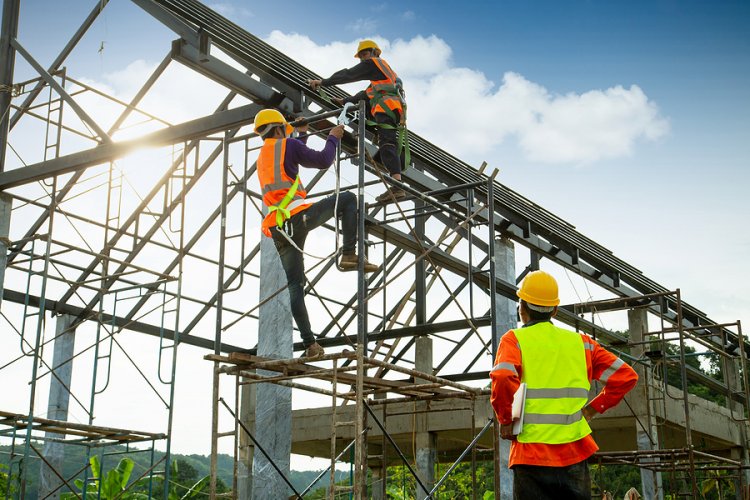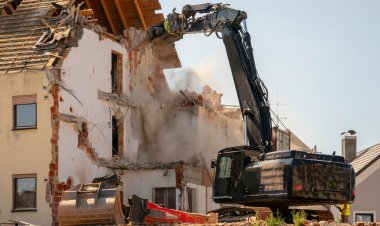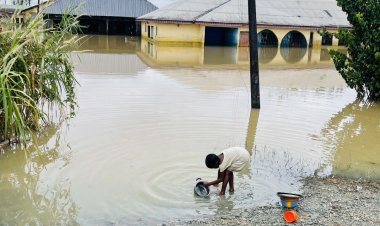10 Safety Measures to Observe in Gas Processing Plants
In Nairobi, Embakasi, a gas plant exploded, cutting short the lives of people and causing hundreds of injuries, while an enormous amount of residential and commercial property was destroyed.

A natural gas processing plant is a unique setup where natural gas is treated and impurities and other nonmethane hydrocarbons are separated to form liquefied petroleum gas through an organic chemical process referred to as liquefaction. Liquefied petroleum gas basically contains components of hydrocarbons or mixtures of them, such as propane, propylene, butanes, and butylene. Liquefied petroleum gas is used for various purposes, such as cooking appliances, industrial applications, and motorcades. As a propellant and refrigerant, it can be precarious when proper precautions aren't put in place.
Gas processing plants often face unavoidable issues of gas leaks, which may be small, medium, or large leakages that may result in explosions, fires, and exposure to toxic substances. Gas leaks can be a result of puncturing gas tanks, equipment corrosion, fire or explosion near a pipeline, excavating accidents, collapsed buildings that destroy gas pipelines, and too much or not enough pressure in the gas system.
This comes after a recent scenario in Kenya's capital city, Nairobi, in Embakasi, where a gas plant exploded, cutting short the lives of hundreds of injured people while an enormous amount of residential and commercial property was destroyed. The explosion occurred as a result of gas leaking from one of the trucks parked in the garage, which ended up spreading in a mist covering a wide area, resulting in a huge inferno that could have been prevented if proper precautions and safety measures had been taken, some of which include:
1. The gas plant needs to be registered
In Kenya, the Energy and Petroleum Regulatory Authority (EPRA) is the body in charge of registering gas plants and giving them a mandate to operate. Before operating a gas plant, EPRA requires one to obtain various licenses and certificates, such as a fire license, Kenya Revenue Authority certificate, Energy Regulation Commission license, business permits, and weight and measures certification. These regulations ensure a safe working environment and also protect the neighborhood from hazardous danger; furthermore, they redeem the gas plant processing unit from potential fines and penalties.EPRA is also entitled to ensure that the gas plant is not situated near residential settlements for safety purposes.
2. Regular inspections are to be conducted
Frequent inspections will help in distinguishing areas that need rectification that could compromise safety, thus helping in identifying and managing potential hazards associated with industrial gases. Through inspections, gas leaks can be identified. An evaluation of exposure risks can also be conducted, and further preventative measures can be taken to reduce the risk of machinery malfunctions and failures and prevent catastrophes.
3. Gas detection and alarm systems must be installed
The detectors must be functional so that in the event of any slight gas leakages, abnormal pressure levels, temperature fluctuations, or the accumulation of hazardous gases, they will raise a warning calling for prompt action. Additionally, other useful equipment includes gas and pressure level monitors, which help to dictate any abnormalities at an early stage, calling for immediate actions to be taken to prevent damage. However, it is also recommended to inspect these systems, detectors, and monitors to ensure their accuracy, reliability, and functionality.
4. Staff should be properly trained
Employees working in gas plant facilities should have adequate knowledge on how to handle gas correctly, on the use of protective equipment, and on how to respond to emergency and first aid measures. Properly trained employees will be beneficial, as they will assist in implementing safety practices and procedures in potentially dangerous situations. Workers should also be provided with safety gear and personal protective equipment to protect them from accidents and injuries that might be a result of gas leakages, such as explosions, fires, exposures to harmful substances, and physical hazards.
5. Maintenance and monitoring practices
Maintenance practices should be conducted frequently by an expert; they are mostly done after inspections have taken place to resolve gas leaks, equipment corrosion, and gas levels, while monitoring helps identify a problem early and thus assists in overcoming the occurrence of an accident. Monitoring practices should be done recurrently while mitigating risk, as it provides early warnings and can be an outlet for safety before gas danger prevails.
6. Proper ventilation
Good ventilation allows for proper circulation of air, thus ensuring that there is proper airflow around gas appliances and inside the gas plant facility, thereby reducing the risk of combustion. The reason for proper ventilation is that liquefied petroleum gas is much heavier than air, so there is a risk of asphyxiation. Moreover, proper ventilation assists in preventing scenarios of gas accumulation in the gas plant processing unit, creating a conducive working environment, and also preventing the risk of explosions.
7. Pipes and gas storage areas should be labeled properly
To caution individuals to handle them with precautions and due course to avoid tampering with them because they can result in inherent risk. On the other side, when things are properly labeled, they can facilitate proper handling and suitable use of equipment, and machinery will also facilitate easy inspections and ensure smooth operation of natural gas processing plants.
8. Provision of portable fire extinguishers
Fire extinguishers are to be placed in case of fire emergencies, for they will be used to extinguish fire easily before it spreads. The presence of fire extinguishers in gas plant processing facilities enhances safety, increases operational efficiency, and reduces the potential for human injuries. Gas plants require the use of class C fire extinguishers ideal for flammable gas fires, that is, fires involving methane, propane, and natural gases, to provide the best response to any given hazard situation.
9. Emergency shutdown systems
Emergency shutdown systems are vital, as they act as watchdogs in case of any slight gas leakage that can result in an explosion. They automatically initiate the shutting down of the gas plant operation, isolate equipment, and alert fire suppression systems. Gas tanks should also have emergency shutdown valves that instantly stop the flow of hazardous gases upon the detection of a dangerous event, therefore helping to ensure protection from harm to the surrounding people and environment.
10. Proper gaseous waste disposal
Effective disposal of waste gases should be put in place to avoid causing environmental pollution and degradation. Waste gases can be disposed of in various ways, such as recycling of gases, disposal of gases by absorption, direct discharge into a simple scrubber, discharge into a counterflow scrubber, discharge into a solid-state absorber, disposal of gases by burning, controlled dilution in a forced air stream, controlled release through a vent line, and lastly, schematic arrangement. Proper disposal of gases minimizes hazards and risks to the ecosystem and society.
If you have a real estate press release or any other information that you would like featured on the African Real Estate Blog Post, do reach out to us via email at [email protected]

































